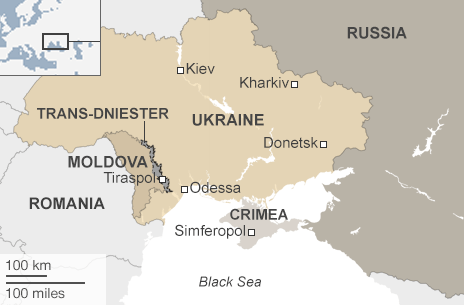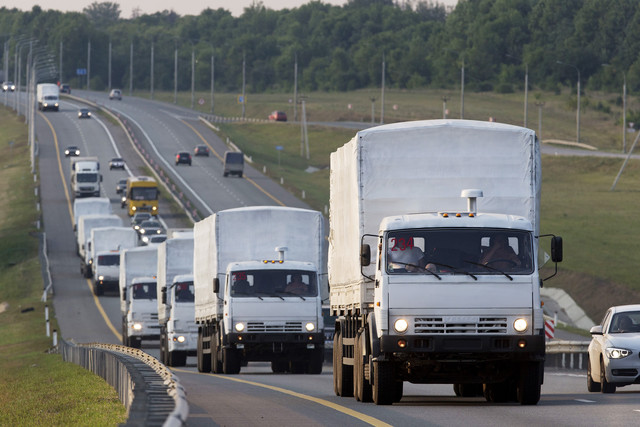Tweet
Russia is sending a large convoy of humanitarian aid to Transnistria, the pro-Russian region of Moldova, with the stated intention of helping the region integrate into the Euro-Asian Union, according to news PMR, a Moldovan news outlet. The Russian organization responsible for directing the deliveries met with the leader of the pro-Russian separatist government in Transnistria Wednesday, reportedly, and stated that there would be around 60 trucks in all.
“We do not know how the situation will develop around Transnistria, so we prefer to have equipment in place immediately,” said the director of the organization of Euro-Asian Union, Alexander Argunov, who also said that he had a meeting with the leader of the separatist republic, Evgeny Shevciuk, Wednesday.
Argunov said that he had discussed with Shevciuk equipment for new medical clinics and kindergartens in Transnistria, which would be built using Russian resources. Russia would also help implement social projects and provide Transnistria with subsidies to help deal with economic problems associated with breaking from Moldova, Argunov said.
Shevciuk was in Moscow in early October where he spoke about the socioeconomic situation in Transnistria following the signing of the Association Agreement between the European Union and the Republic of Moldova.
Moldova held parliamentary elections last week, in which pro-European parties took a greater number of seats than pro-Russian parties. Moldova will now form a coalition government that will have strong pro-European inclinations.
Read more: “Let us vote!” – Moldovans shout in Moscow
Argun said that the equipment being delivered to Transnistria was produced by various manufacturers in Germany, Belarus,  and other nations. “We bought the best option based on price and quality, such that will suit our beneficiaries in Transnistria.”
and other nations. “We bought the best option based on price and quality, such that will suit our beneficiaries in Transnistria.”
Seven trucks arrived in Moldova in early November. Argunov said Wednesday that there would be about 60 in total, and “dozens” were currently on their way.
Argunov also commented on the complex nature of such cargo deliveries, saying that the organization shipped the most simple products first, such as furniture.
“On the example of furniture,” Argunov said, “we have seen how loads have passed through Ukraine, which was with difficulties, and what was required of the Ukrainian authorities with regards to the passage of the cargo. We assessed how things happened there [with simple products first], and then began to send more expensive medical equipment.”
The first deputy chairman of the Customs Committee of the Pridnestrovian Moldovian Republic (PMR), Svetlana Klimenkova, said that the Transnistrian side is making every effort to ensure continuity of the process and to facilitate “Eurasian integration.”
“Initially, we worked out all the possible options in terms of movement of these types of goods and provided the ability to move in such a way as to eliminate all the problems of complexity and difficulty. The process worked efficiency, “said Klimenkova.
By James Haleavy
